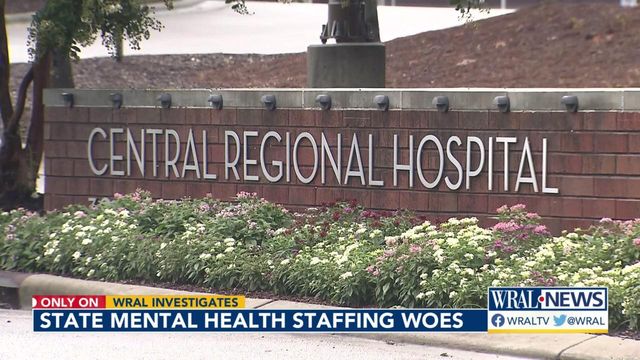Wake expanding mental health services on school campuses
Mental health issues have been rising in North Carolina and the United States for more than a decade, including among the nation's youngest people
Posted — UpdatedAnd earlier Tuesday, state lawmakers received a report that showed the differences in funding and hiring across the state.
The services are provided by contract with outside mental health agencies, namely Alliance Health.
On Tuesday, Wake County school board members called the expansion of the new pilot program a good thing but had many questions about whether the school system is doing enough to make its resources known to families and transitioning students from the hospital setting back into school.
Paul Koh, district assistant superintendent for student support services, said families must consent to Alliance Health informing the school system that their child has been in the hospital in order for the school to create a transition plan.
Board Member Karen Carter said she worried some students weren’t having transition meetings and wasn’t sure consent to release information was the reason why.
Board members urged the district to communicate the process needed with families.
Mental health challenges threaten students’ academic experience, Carter said.
“You can’t get an education if there are barriers, and this is a significant barrier,” Carter said.
Board Member Heather Scott urged working with community groups, including churches, to spread awareness of mental health supports and training.
The school system is offering training for families, as well as all school employees, on supporting children’s mental health and on suicide-risk awareness.
The district plans to expand its pilot program for on-campus mental health services to 10 more schools before eventually expanding to all of the district’s 197 schools.
While the school system wants to get the word out about the services available, “we don’t want to get too far ahead of our capacity,” Koh said. Expansion may take some time.
“There’s a process of recruiting enough agencies,” Koh said, adding that labor shortages can make that harder. “People aren’t jumping at the chance to do this… There’s a lot of logistics on their end to make it economically worth their while.”
The on-campus mental health services provided via the contract differ from the types of support most schools hire in-house to provide students. School psychologists and school counselors can provide mental health but are often employed to do other things, such as special education evaluation or academic and career guidance.
Kushner noted the Gaggle pilot program — funded by the North Carolina General Assembly — attempts to monitor students’ mental health needs based on artificial intelligence monitoring of students’ computer activity. Gaggle is the company that provides the service.
The pilot programs “showed us you can’t do it with technology,” Kushner said. “You can’t try to do things with algorithms. We need adults in the building. The last two years have shown us the need. The state needs to step up… and it’s not doing it from Jones Street, and it’s maddening to me.”
On Tuesday morning, the General Assembly’s Joint Education Oversight Committee heard the results of the report it requested last year on how many school support professionals work in each school district and what the source of funding is for each of them.
The school systems largely are still short of the recommended numbers of those professionals, though some funding has recently increased for more school psychologists.
Lawmakers discussed how to provide more services for students, to enable academic success.
“We don’t have sufficient mental health counseling in the state,” Sen. Gladys Robinson, D-Guilford, said “Unfortunately, schools are where you see the results of children needing that.”
Hiring in-house is challenging, because the private sector pays more than schools can, Catawba County Schools Superintendent Matthew Stover told lawmakers.
Several lawmakers asked Stover about contracting for services, rather than hiring, and about any impediments licensing rules pose.
Stover said alternative licensing pathways can be a workaround from any instances in which North Carolina has more licensing requirements than states workers may be coming from.
But Stover said his district struggles to contract for certain roles and prefers to hire people to work full-time on school grounds. He is able to provide, through contracts, some telehealth services for students. But recently, he’s had to hire school counselors who aren’t fully credentialed.
Later this year, lawmakers will also receive an annual report on school districts’ mental health plans. The Wake County system will update its plan later this month.
Koh said Tuesday those updates will show the district is focused on growing referrals to Alliance Health and to supportive counseling, provided by contractors.
Related Topics
• Credits
Copyright 2024 by Capitol Broadcasting Company. All rights reserved. This material may not be published, broadcast, rewritten or redistributed.






